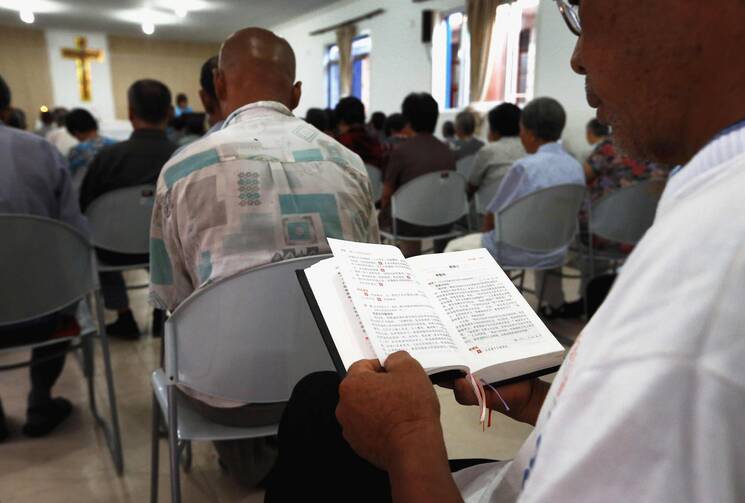Two priests were elected as candidates to be bishops of two Catholic dioceses in the Province of Henan, the birthplace of Chinese civilization, in central China. They were chosen in closely supervised elections on April 28 and 29, and must now obtain approval from the State-sanctioned Bishops’ Conference—an entity not recognized by the Holy See, before they can be ordained.
The Vatican has not yet commented on the elections. But UCA News—the main Catholic news agency in Asia—which first broke the news, reports that both candidates had already received approval from Rome some years ago. If this is indeed the case, the results of the April elections should not create problems for Sino-Vatican relations; indeed, they could signal the opening of a new, more positive phase in that delicate relationship.
Both elections were conducted according to “the democratic process” introduced by the Communist Government in China in the late 1950s. That process allows for priests and representatives of the nuns and laity in the given diocese to vote in the election, but the whole operation is carefully organized and controlled by civil authorities and the Patriotic Association (which the Holy See does not recognize) at the local level, under the direction of the higher authorities in Beijing.
Thus at the April 28 election for the candidate to be bishop of Zhumadian diocese 26 persons voted: 15 priests, one nun and 10 lay people. There was only one name on the ballot sheet, however, that of Father Cosmos Ji Chengyi, according to UCA News. He received 22 votes, but a source who asked not to be named told the news-agency that three priests did not show up for the election, and he believes the four who did not vote for Father Ji were also priests.
Something similar happened on April 29 in the diocese of Anyang. Forty people showed up for the election—20 priests, 10 nuns and 10 lay leaders, while an elderly priest and a bishop cast absentee votes because of ill health. Again, there was only one name on the ballot sheet: Father Joseph Zhang Yinlin, the vicar general of the diocese. Thirty-eight voted for Father Zhang and 4 abstained, UCA News reported. A source told the news agency that he had seen a priest walk away from the preparatory meeting on the eve of the election when officials from the government and the Patriotic Association turned up at the meeting; the priest did not vote in the election next day. The source also expressed unhappiness that there was only one name on the ballot sheet.
It should be noted that this is not the first time since the election of Pope Francis that that the state-sanctioned church authorities organized the election of a candidate to be bishop for the Church in China. They did so for the first time on May 6, 2014 in the diocese of Chengdu, southwestern China. Father Joseph Tang Yuange was elected then, but he did not have papal approval and if he were ordained without that he would have been declared illicit and would have automatically incurred excommunication, as happened to the last three illegitimate bishops in China in the final years of the papacy of Benedict XVI. It is perhaps significant that Beijing, which had in the meantime agreed to re-open a dialog with the Vatican, has not yet given the green light for that ordination in Chengdu.
It actual fact, China, under President Xi Jinping, and the Holy See, under Pope Francis, seem to be slowly, if cautiously, opening to each other. Both sides resumed official talks again at the end of June 2014. The Holy See then sent a delegation to Beijing to dialog with its counterparts there. The following August, the Chinese authorities gave clearance for Pope Francis’ plane to travel through China’s airspace on the journey to and from Seoul. The dialogue continues, and the nomination of bishops is the central and most debated issue in those discussions. Indeed, the appointment of bishops is also a pressing pastoral issue for the Church in China today, since some 40 dioceses are without a pastor, as I have explained in the current edition of America.








